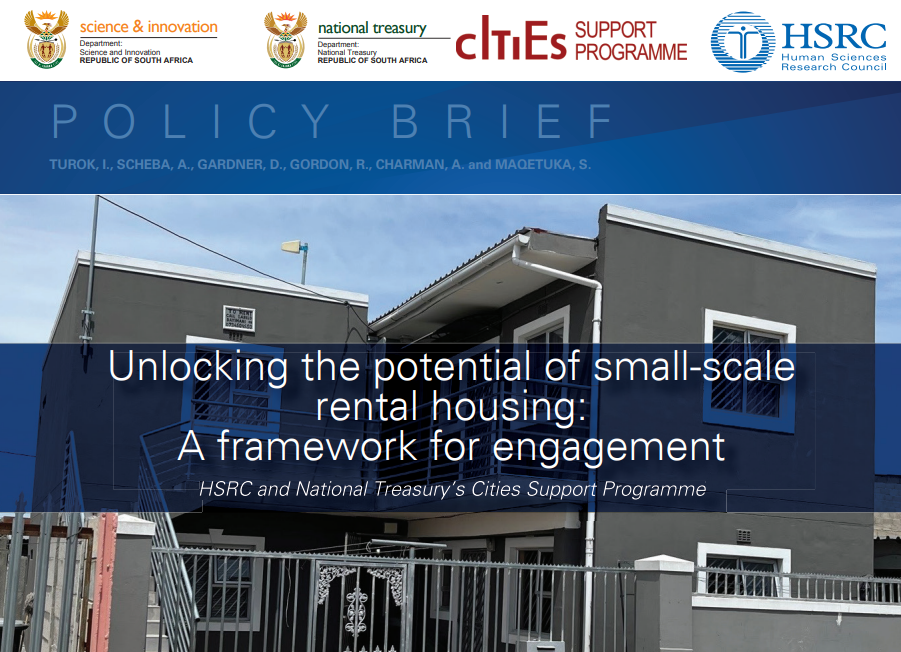Unlocking the Potential of Small Scale Rental Housing
A framework for engagement

This policy brief explores the multifaceted role of Small-Scale Rental Housing (SSRH) in South African cities, shedding light on its contributions to affordability, economic development, and social transformation. SSRH, characterised by single-room units, full dwellings, or two-to-three-storey walk-ups provided by individual owners or small enterprises, represents a dynamic and enterprising township activity. It serves as a source of crucial income for poor homeowners, micro-developers, and black entrepreneurs engaged in property development and related industries, while also sustaining numerous jobs and livelihoods within the townships. However, the government's historic neglect of this informal and unauthorised sector has led to haphazard densification, straining essential infrastructure, community facilities, and social cohesion. This hands-off approach is deemed a missed opportunity to shape sustainable developments, with the risk of overcrowding, congestion, insecurity, public health issues, and social instability.
The policy brief advocates for a more supportive government approach to guide and regularise the SSRH sector, attract private investment, and bolster its role in economic recovery, housing delivery, and township resilience. Collaborative efforts by city officials, practitioners, civil society organisations, and researchers provide a strong foundation for crafting an improved regulatory environment and action plan for the future.
Abstract based directly on source.



Comments